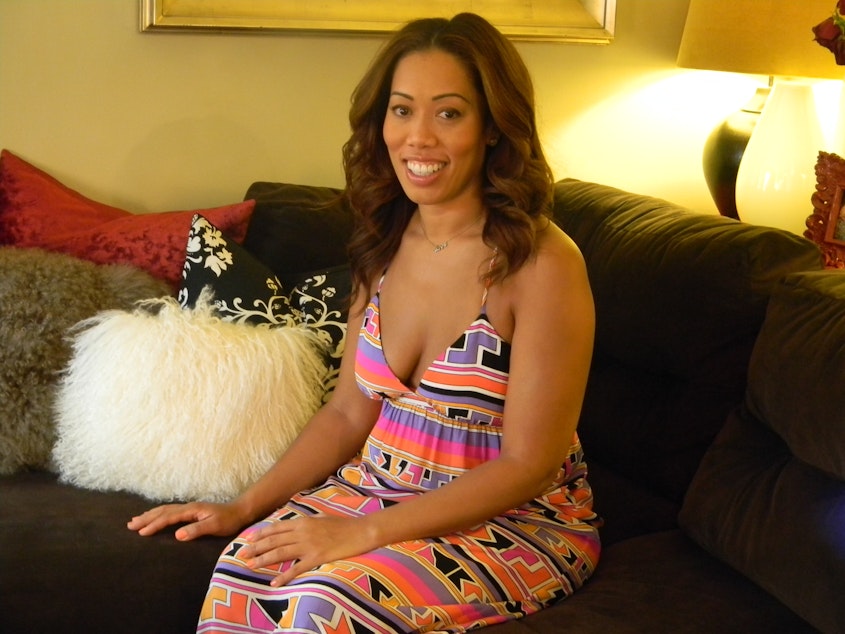Finding a (Black) man: Dating woes for Seattle's Black women

In 2002, Seattle Times columnist Jerry Large wrote about the black experience in Seattle in which black women complained about how few black men there were to date. One woman said to "bring your own black men (or women) to date because Seattle is hard on black women's dating aspirations."
More than a decade later, black women say that’s still the case.
Which is why, in part, Margo Jones finds herself once a month at Sea-Tac Airport, either picking up her boyfriend Ramonde Carpenter, or flying out to New York City to visit him.
On a recent Monday, it was his turn to visit, and when he arrived, they laughed and hugged and kissed. No doubt about it: They were totally in love.
The travel may be expensive and exhausting, but for Jones, it’s better than no relationship at all. She echoed the women in Large’s column, saying that it’s nearly impossible to find a black man to date in Seattle.
Sponsored
University of Washington sociologists Stewart Tolnay and Kyle Crowder called it the “marriage squeeze,” noting the declining rate of black women getting married.
In the last 40 years, black women have had a harder time finding black men to marry for various reasons – high mortality, high incarceration rates and interracial marriage.
For single black women, that may mean being willing to go out. That’s what it means for 37-year-old Marquetta Riley, anyway.
On a recent Friday night, Riley, a tall, fit woman, stood before her vanity, a full spread of makeup and hair products in front of her. Her makeup brushes made a tapping sound as she dusted off her final application of eye shadow and powder.
“I’ve got to get beautified,” she said, laughing. “A little makeup, a little blush, a little eye shadow. Ah, a lot of eye shadow.”
Sponsored
Riley has been in relationships before, most of them long distance. On this Friday night, she’s meeting an ex-boyfriend from 14 years ago for dinner – he called her hours before from Los Angeles, saying he would be in Seattle around 7 p.m.
She has a type: “Dark skinned, tall, lean, like athletic-build black men. That’s all I’m attracted to,” she said. Not easy to find that type in Seattle – or to find one that isn’t timid, she said.
For example, a month ago Riley was at a bar-restaurant called Cactus when she spotted an attractive black man.
“I was like, ‘Where did you come from, black man that is so attractive?’” she said. "Because that’s few and far between too! And he kept turning around looking at me for about 45 minutes. He never once said hello, he never gave the black person head nod – nothing, you know what I mean, nothing!
“If I were in another city I would have at least got the, ‘Hey, how you doing?’” she said.
Sponsored
As she prepared for this Friday night, she said that she’s come to realize that the men she prefers don’t live in Seattle.
And so she faces a dilemma: “I can choose my career and my life here, or I can move to be happier in another portion of my life. So is it better for me to be successful and independent or is it more important for me to be in a relationship? That’s the question.”
Family therapist Heidi Henderson-Lewis said she would encourage black women like Riley to keep an open mind – especially here in Seattle.
Henderson-Lewis counsels black couples; she even has a support group called the “black marriage movement.”
“There’s this term we use in our world, and it’s called 'scotoma,' and it’s basically blinders, you only see what you want,” Henderson-Lewis said. “You’ll be able to remove those scotomas if you expand your ideas of what’s good, and what you might need, and you might actually see that there are other men out there that can make you happy.”
Sponsored
Back at Sea-Tac Airport, Ramonde Carpenter said he plans to move to Seattle in the next year or two. Jones said she’s willing to wait – after all, she’s waited this long.
Follow the hashtag #blackinseattle on Twitter and add your questions and insights.
Funding for Black In Seattle was provided by the KUOW Program Venture Fund. Contributors include Paul and Laurie Ahern, the KUOW Board of Directors and Listener Subscribers.

